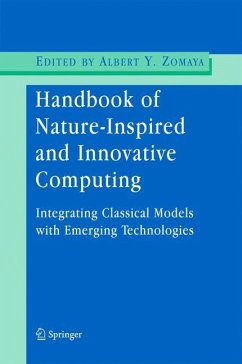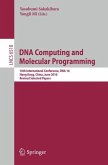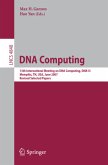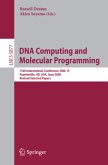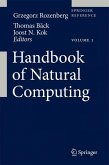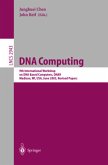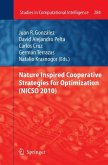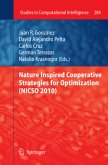As computing devices proliferate, demand increases for an understanding of emerging computing paradigms and models based on natural phenomena. Neural networks, evolution-based models, quantum computing, and DNA-based computing and simulations are all a necessary part of modern computing analysis and systems development. Vast literature exists on these new paradigms and their implications for a wide array of applications.
This comprehensive handbook, the first of its kind to address the connection between nature-inspired and traditional computational paradigms, is a repository of case studies dealing with different problems in computing and solutions to these problems based on nature-inspired paradigms. The "Handbook of Nature-Inspired and Innovative Computing: Integrating Classical Models with Emerging Technologies" is an essential compilation of models, methods, and algorithms for researchers, professionals, and advanced-level students working in all areas of computer science, IT, biocomputing, and network engineering.
This comprehensive handbook, the first of its kind to address the connection between nature-inspired and traditional computational paradigms, is a repository of case studies dealing with different problems in computing and solutions to these problems based on nature-inspired paradigms. The "Handbook of Nature-Inspired and Innovative Computing: Integrating Classical Models with Emerging Technologies" is an essential compilation of models, methods, and algorithms for researchers, professionals, and advanced-level students working in all areas of computer science, IT, biocomputing, and network engineering.
From the reviews:
"Handbook contains 22 chapters, written in a 'workshop style' ... . I found this volume to be a fascinating, and 'gentle,' introduction to a wide range of nonstandard research areas of computer science. ... this book used as the basis for a seminar on approaches to decentralized computation. ... I consider it a collection of tutorials ... . I think this book would be of use to anyone with some CS sophistication who desires exposure to a wide range of newer or less-publicized research areas." (Aaron Sterling, The Book Review Column, 2011)
"Handbook contains 22 chapters, written in a 'workshop style' ... . I found this volume to be a fascinating, and 'gentle,' introduction to a wide range of nonstandard research areas of computer science. ... this book used as the basis for a seminar on approaches to decentralized computation. ... I consider it a collection of tutorials ... . I think this book would be of use to anyone with some CS sophistication who desires exposure to a wide range of newer or less-publicized research areas." (Aaron Sterling, The Book Review Column, 2011)

